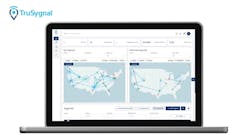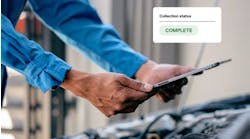Editor’s note: This is the fifth and final part of a series on how shippers and carriers are working together in the modern freight world. Read Part 1, Part 2, Part 3 and Part 4.
Florida-based Atlantic Logistics was founded in 2001 by Evie and Bob Hooper, and it remains a family-owned and -operated company today, focusing especially on heavy-haul and oversized shipments. In 2010, the company began deploying McLeod Powerbroker software as its TMS. Last year, under the leadership of CEO Robert Hooper, it moved 12,000 shipments with a freight value of more than $15 million.
Fleet Owner recently had the opportunity to ask Hooper about the role of the third-party logistics (3PL) provider today as the relationship between shippers and carriers continues to change.
FO: Do you see the relationship between carriers, shippers, and receivers evolving? If so, how is that impacting 3PLs?
Hooper: Yes, I do see the relationship evolving and am concerned about the long-term future of 3PLs. In the transportation industry, 3PLs exist and are thriving due to the fragmentation of the carrier base and the abundance of shippers. This gives rise to the need of intermediaries, such as Atlantic Logistics, to facilitate information, transactions, carrier compliance, payments, and freight matching.
3PLs have been adopting technology rapidly to become more efficient, but there are technology firms, such as Uber, that are trying to bridge that gap between shippers and carriers, directly seeking to become the 3PL. They are trying to disintermediate (while still being the intermediary). Technology makes this more feasible.
Yet, even in the midst of these threats, 3PL usage is increasing because of our adoption of technology — utilizing digital freight matching, machine learning, visibility, and our ability to integrate through APIs and EDI into our large shippers’ software systems. We must continue to utilize technology to make our industry more efficient and connect with very small carriers (average size is 2.1 trucks) who are slow to adopt new technologies.
FO: Where is all this headed for shippers, carriers, and 3PLs?
Hooper: Embracing change is making the industry better and will inevitably, as competition does, shrink margins while increasing productivity. I think we as an industry need to be, and Atlantic Logistics is, ready to adopt cutting-edge technologies to drive out waste in the system, reducing deadhead miles of trucks, shortening time between shipments, also utilizing real-time tracking to ensure that shippers and receivers are not wasting drivers’ time loading and unloading (or paying for that detention time).
FO: 3PLs sometimes seem like the musical conductors of the supply chain, working to help many different players create something fine together. Is that a fair analogy?
Hooper: We are the conductors of the supply chain, Adam Smith’s invisible hand, greasing the transportation system and creating a beautiful symphony from many different instruments. We are tuning up the industry, and it [will be] very exciting to see what the next five years hold, because it will look very different than it does today, and it will be better for truckers, shippers, consumers, and agile 3PLs that embrace change.
This is the fifth and final part of a series on how shippers and carriers are working together in the modern freight world. Read Part 1, Part 2, Part 3 and Part 4.




